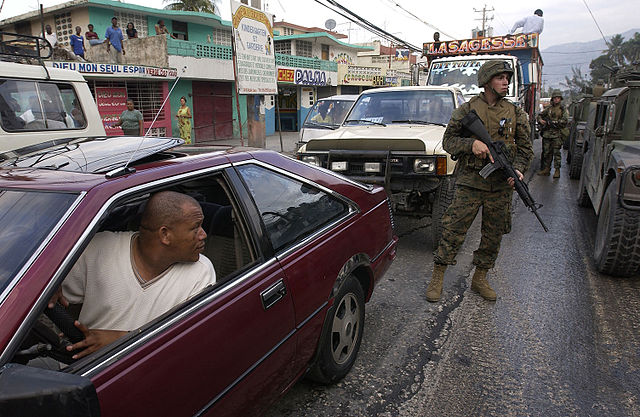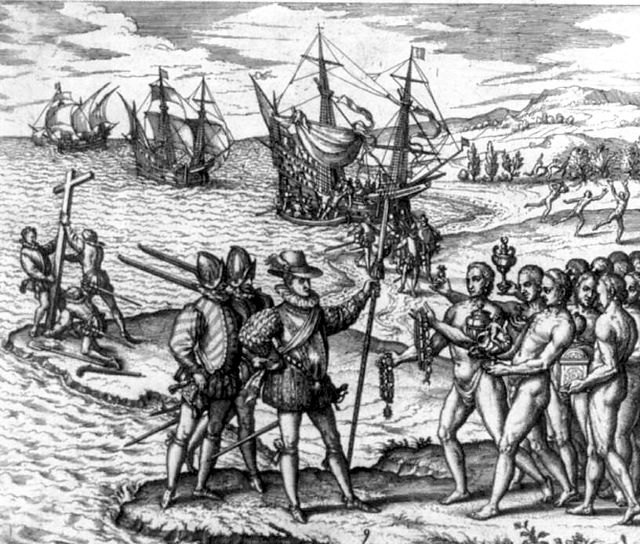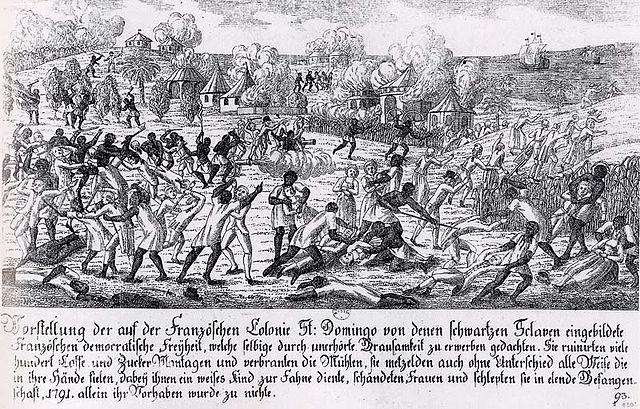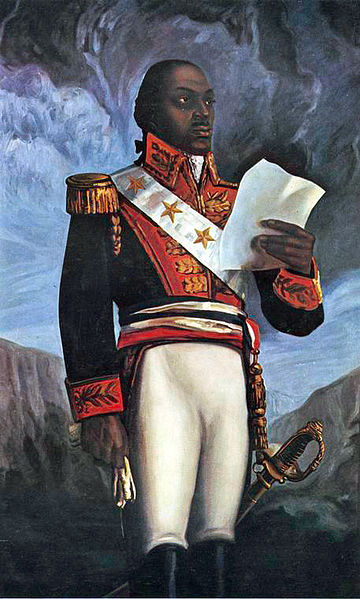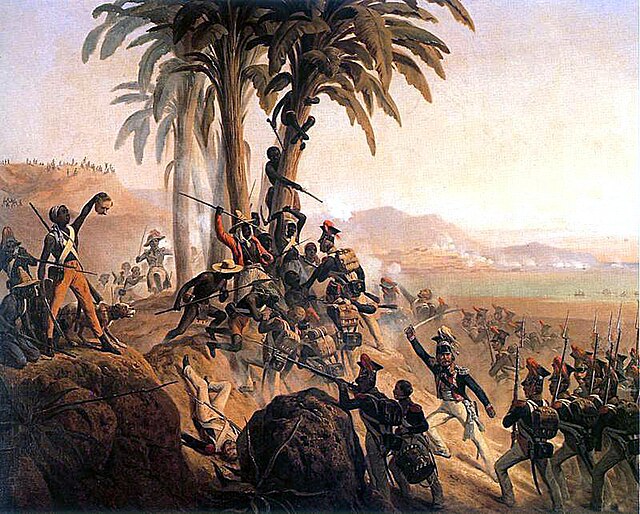A coup d'état in Haiti on 29 February 2004, following several weeks of conflict, resulted in the removal of President Jean-Bertrand Aristide from office. On 5 February, a rebel group, called the National Revolutionary Front for the Liberation and Reconstruction of Haiti, took control of Haiti's fourth-largest city, Gonaïves. By 22 February, the rebels had captured Haiti's second-largest city, Cap-Haïtien and were besieging the capital, Port-au-Prince by the end of February. On the morning of 29 February, Aristide resigned under controversial circumstances and was flown from Haiti by U.S. military and security personnel. He went into exile, being flown directly to the Central African Republic, before eventually settling in South Africa.
U.S. Marines patrol the streets of Port-au-Prince on 9 March 2004
Chairman of the Joint Chiefs of Staff General Richard B. Myers inspecting U.S. troops deployed as part of peacekeeping operations in Haiti on March 13, 2004.
Haiti, officially the Republic of Haiti, is a country on the island of Hispaniola in the Caribbean Sea, east of Cuba and Jamaica, and south of The Bahamas. It occupies the western three-eighths of the island which it shares with the Dominican Republic. Haiti is 27,750 km2 (10,714 sq mi), the third largest country in the Caribbean, and has an estimated population of 11.4 million, making it the most populous Caribbean country. The capital is Port-au-Prince.
Artist's impression of Christopher Columbus landing on Hispaniola, engraving by Theodor de Bry
Saint-Domingue slave revolt in 1791
General Toussaint Louverture
Battle between Polish troops in French service and the Haitian rebels. The majority of Polish soldiers eventually deserted the French army and fought alongside the Haitians.

